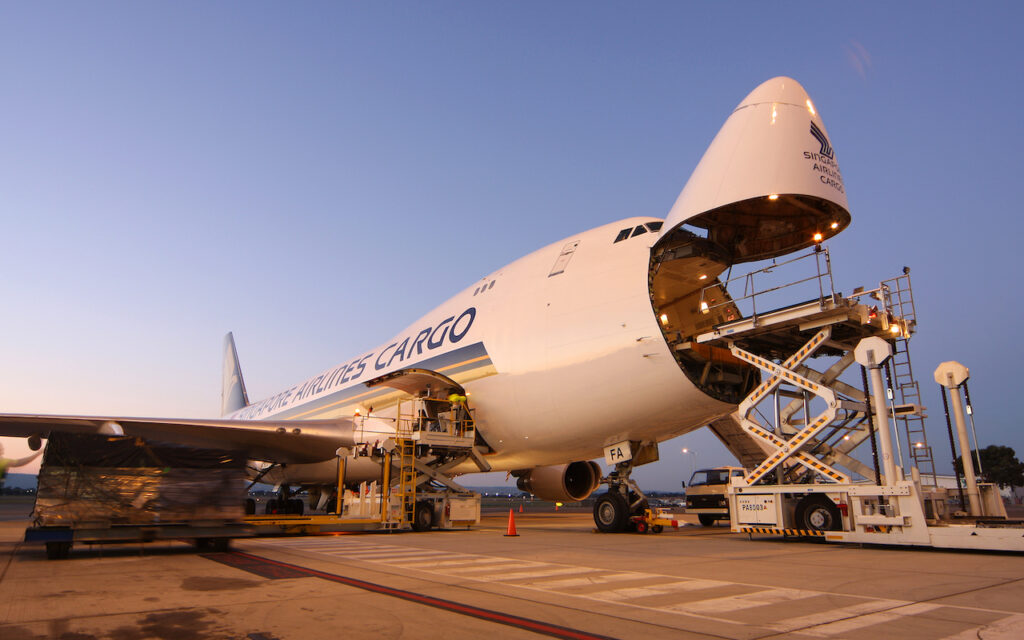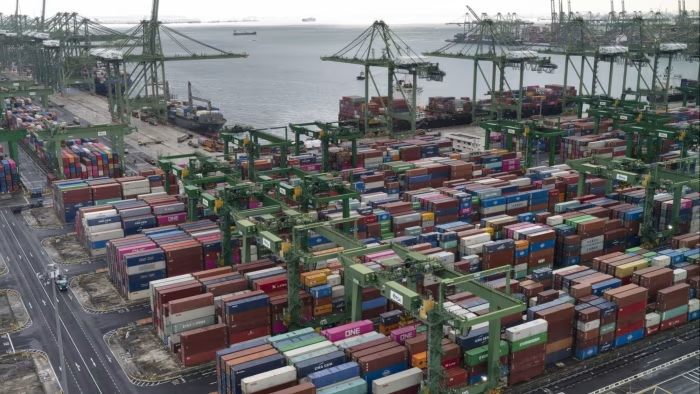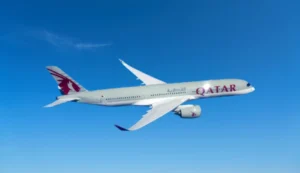Air Freight Rates Soar in Singapore Amid Global Port Congestion
Singapore’s air freight rates are rising as port congestion forces companies to switch from sea to air shipping, leading to higher costs and extended delays.

Image Source: SilverKris
Amid global port congestion, Singapore’s air freight rates are continuing to rise, compelling many companies to switch from sea to air shipping. Local firms are now paying up to 50% more to ship goods by air to avoid prolonged shipping delays.
Logistics providers report a 20% increase in local companies making the switch from sea to air freight, driven by the need to meet customer demands promptly. The shift, however, comes at a steep price. Since the beginning of the year, air freight costs have surged significantly.
Cargo planes are already booked for the next two months, with industry players predicting further increases in air freight rates as the peak delivery season approaches. Earlier reports indicated that shipping delays in Singapore had more than doubled due to port congestion and a shortage of container ships.
Various factors, including diversions caused by unrest in the Red Sea, have contributed to this volatility. In response, port operator PSA Singapore is ramping up capacity and implementing smart technologies to manage the situation better.
The International Air Transport Association notes that demand for air cargo in the Asia-Pacific region rose by 20% year-on-year in May, while supply increased by only 9%. This imbalance is driving up costs and straining logistics networks.
For companies like Singapore Home Cooks, the cost of flying a 95kg cargo from source markets such as Japan and South Korea has escalated to about S$1,000 (US$740), five times the cost of sea freight. However, for businesses dealing in perishable goods, air freight remains the only viable option despite the high costs.
Canlian Liew, corporate communications manager at Singapore Home Cooks, explained that the company has raised prices slightly to cover the increased logistics costs, though most of the burden is absorbed internally. The firm sources exclusive products from overseas and sells them through Facebook livestreaming, necessitating reliable and timely shipping.
Sea freight delays have extended delivery times from two weeks to over a month, disrupting supply chains and customer satisfaction. Liew recalled the daily customer inquiries about shipment arrivals, highlighting the operational challenges posed by the ongoing congestion.

Logistics providers recommend that companies plan ahead and work closely with freight forwarders to mitigate delays. Vincent Wong, Asia airfreight director at CH Robinson Freight Services, stated that the company has expanded its airline portfolio by 30% over the past two years to cope with rising air freight demand.
The company has seen a 20% increase in inquiries about switching from sea to air freight. Wong noted that costs have been rising steadily since the COVID-19 pandemic, making it unlikely that pre-pandemic rates will return. Despite the current period being a traditionally low season, the industry is experiencing sustained high demand and rising costs.






